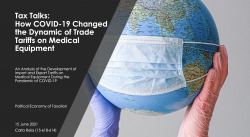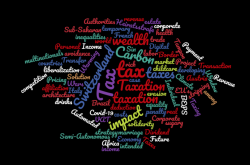
The tampon tax has become an on-going discussing topic. Support to repeal this tax has increased in the last years, with activists arguing that menstrual hygiene products should be classified as tax-exempt necessities, alongside other items such as food, tap water and medicine. This issue pertains to gender equality, affordability and women’s health. While the large majority of the countries around the world still tax menstrual hygiene products as non-essential goods, some countries are starting to lift or reduce the tax. In 2004, Kenya became a trailblazer when it was the first country in the world to repeal the tampon tax. Listen to this podcast to learn more on the topic, by discovering both sides of the argument, and understanding the implications following an amendment of the tax.




Recent Comments